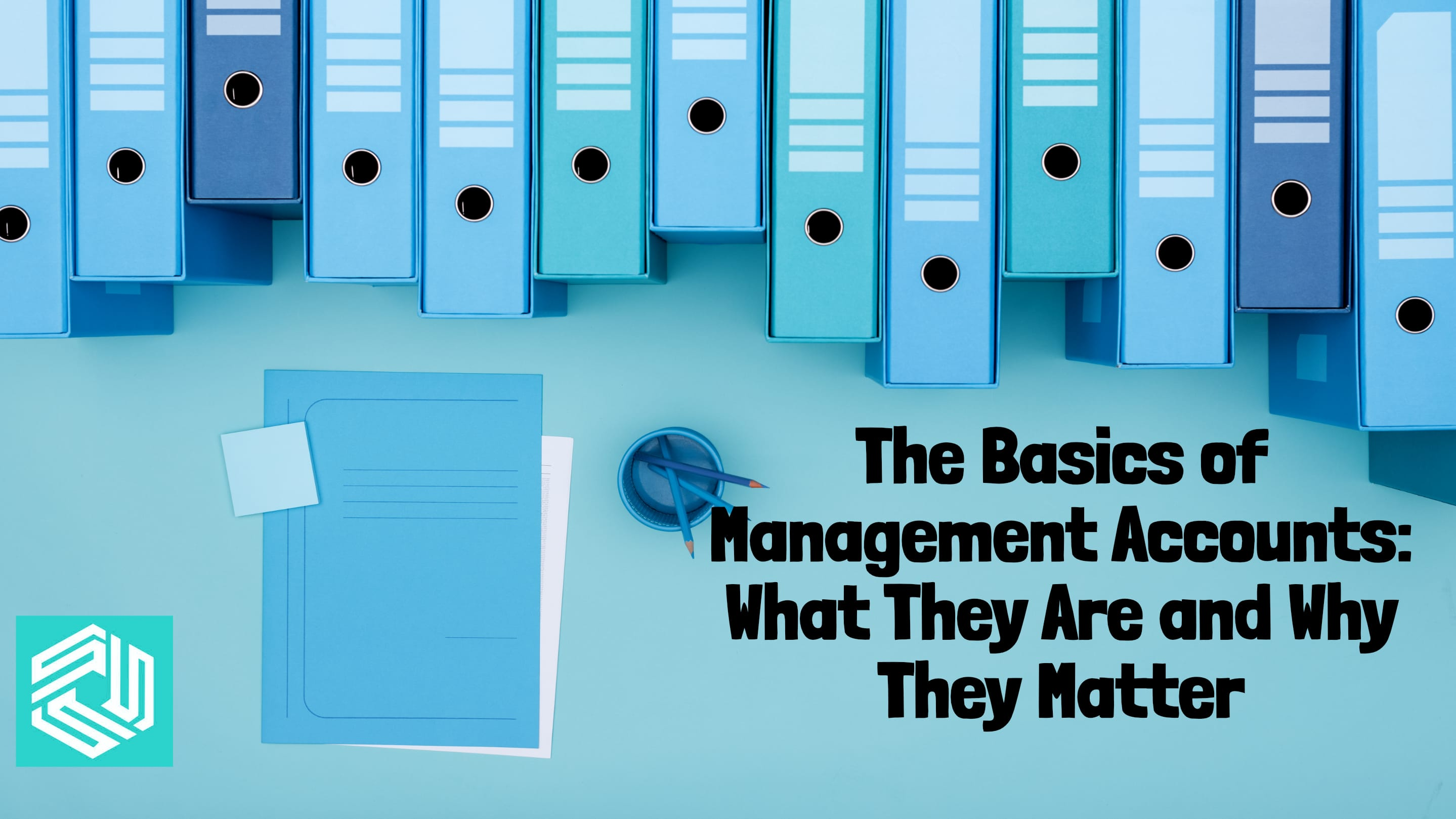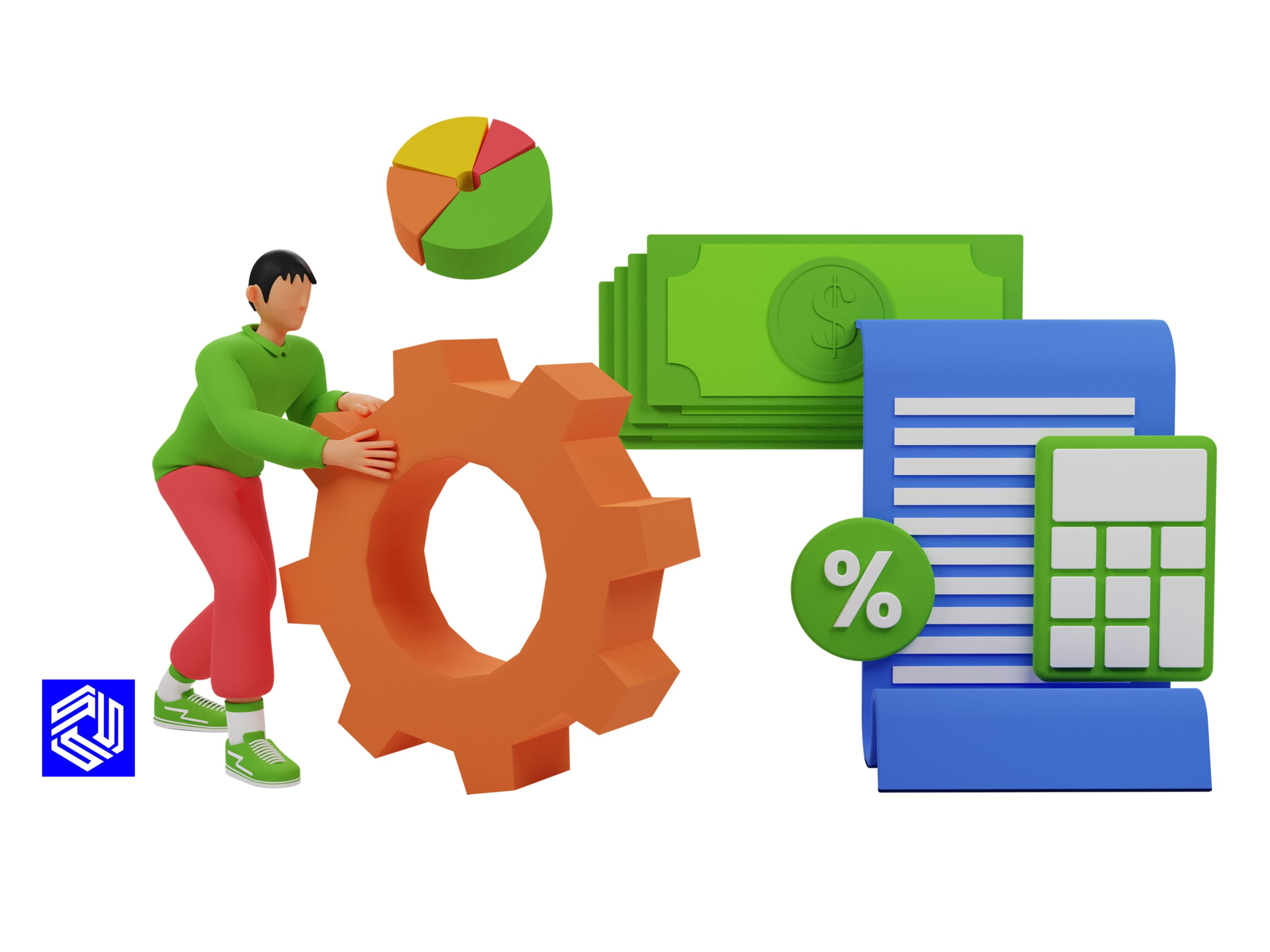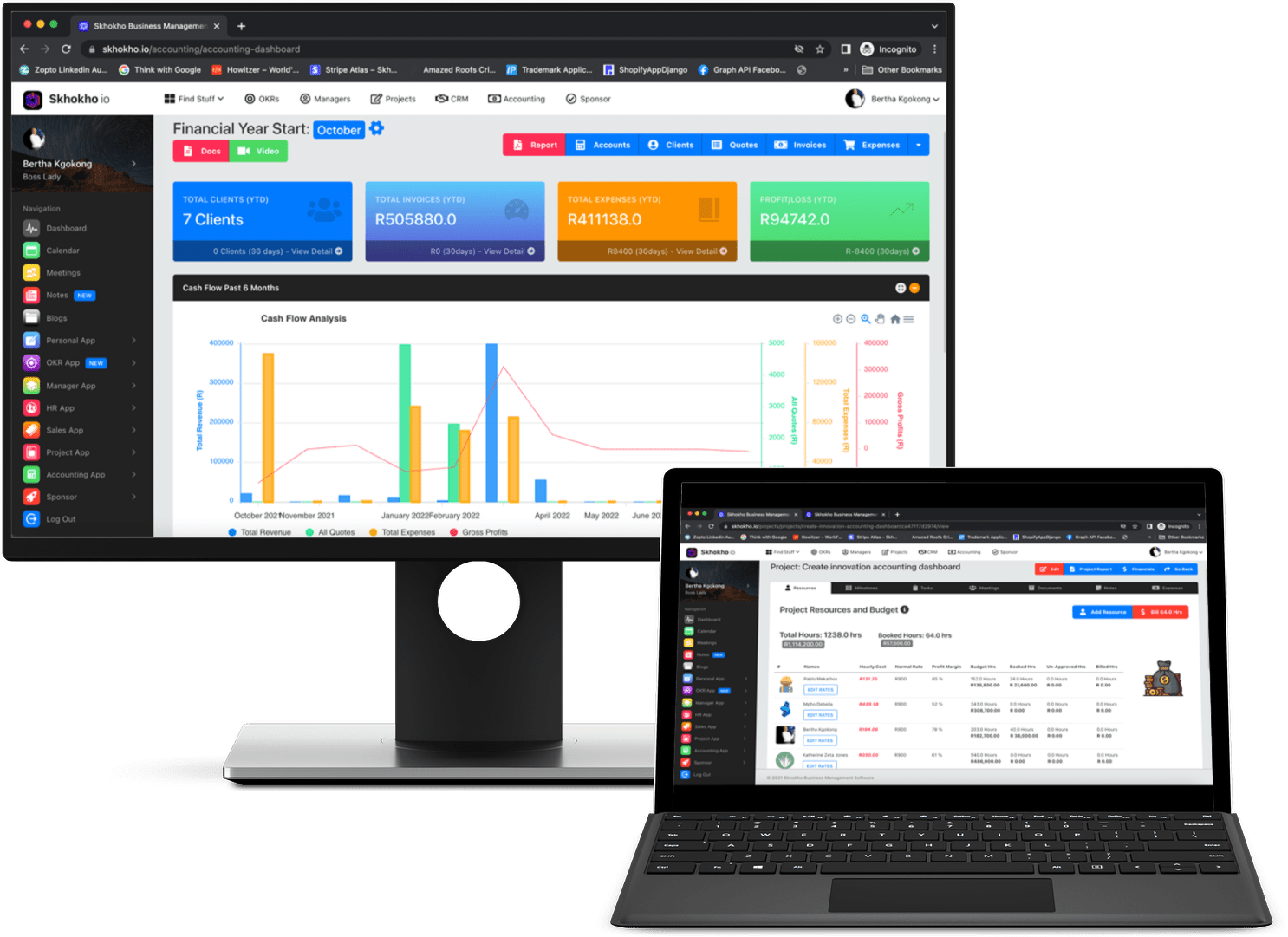The Basics of Management Accounts: What They Are and Why They Matter
Managing a business is a complex task that requires careful planning, analysis, and decision-making. In order to make informed decisions about the future of the business, it is important to have access to accurate and up-to-date financial statements. This is where management accounts come in. Management accounts provide detailed information on the business performance, helping department managers to make informed decisions about managerial accounting such as how to allocate resources, manage cash flow, and plan for the future.
In this blog, we will explore the basics of management accounts, including what they are, why they matter, and how they can be used to benefit your business. Whether you are an entrepreneur just starting out or a seasoned business owner, understanding management accounts is essential for success.

Generally Accepted Accounting Principles
Generally Accepted Accounting Principles (GAAP) refer to a set of guidelines, standards, and rules that govern how financial statements are prepared and presented. GAAP provides a standard framework for financial reports that ensures consistency, comparability, and accuracy in financial statements across various companies.
GAAP covers various aspects of financial accounting, including revenue recognition, asset valuation, financial statement presentation, and disclosure requirements. Companies that follow GAAP guidelines are considered to be following industry best practices and can enhance their credibility and reputation among investors and other stakeholders.
What are Management Accounts & Why They Matter
Management accounts are a set of financial accounting reports that provide detailed information about a company's financial performance, typically on a monthly or quarterly basis. They are used by managers to make informed decisions about the company's operations and finances. Unlike financial accounting accounts, which are prepared for external stakeholders such as investors and tax authorities, management accounts are used internally to help managers understand the company's financial health.
The functions of management accounting: Management accounting can be used in various ways. Some companies don’t use all of those, but the relevant use cases can be influenced by organizations, usually according to their size, the market, the individual manager’s practices and preferences. Some companies may employ managerial accountants to accomplish this task. Management accounting is intended to help managers make decisions, and individual practices differ greatly based on managers' specific needs.
Management accounts matter because they provide managers with a detailed picture of a company's financial performance, allowing them to make informed decisions about how to allocate resources, manage cash flow, and plan for the future. In this section, we will explore the key benefits of management accounts, how they can help in decision-making, and some examples of industries that benefit from management accounts.
Key Differences between Management Accounts and Financial Accounts
The primary difference between management accounts and financial accounts is their intended audience. Financial accounting accounts are prepared for external stakeholders, such as investors and tax authorities, while management accounts are prepared for internal use by managers.
Financial accounts must follow specific accounting standards and regulations, while management accounts can be customized to meet the specific needs of the company. Additionally, financial accounts are typically prepared on an annual basis, while managerial accounting differs from financial accounts as they are prepared more frequently, often on a monthly or quarterly basis. Finally, financial accounts are historical in nature, while management accounts are forward-looking and focus on planning for the future.

Common Types of Management Accounts
Management accounts can be categorized into various types based on the financial information they present. Here are some of the most common types of management accounts, management accounting involves:
-1. Income Statement:
This type of management account presents the revenues earned and expenses incurred during a specific period. The Income Statement provides an overview of the financial performance of the business and is used to evaluate the profitability of the business.
-2. Cash Flow Statement:
The Cash Flow Statement presents the cash inflows and outflows of the business during a specific period. It provides an overview of the liquidity of the business, and its ability to generate cash flow to meet its obligations. This type of management account is critical for businesses with tight cash flows, as it helps to monitor and manage cash flow effectively.

-3. Cost of Sales:
The Cost of Sales management account presents the direct costs associated with producing or selling a product or service. It includes the cost of materials, labor, and overhead expenses incurred in the production process. This type of management account is used to determine the profitability of the products or services being sold.
-4. Operating Expenses:
Operating expenses management account presents the indirect expenses incurred by the business in its day-to-day operations. These expenses include rent, utilities, salaries, and marketing expenses. This type of management account is essential for tracking the business's operating costs and controlling expenses to improve profitability.
-5. Administrative Expenses:
This type of management account presents the costs incurred by the business in carrying out administrative activities. It includes expenses such as office supplies, legal fees, and accounting fees. This type of management account is essential for managing administrative expenses and ensuring that they do not exceed the budget.

-6. Income Tax:
The Income Tax management account presents the taxes paid by the business during a specific period. This type of management account is essential for managing tax obligations and ensuring that the business is in compliance with tax laws.
-7. Current Assets:
Current Assets management account presents the assets that can be easily converted into cash within a year. This includes inventory, accounts receivable, and cash equivalents. This type of management account is essential for monitoring the liquidity of the business and managing short-term financial obligations.
-8. Fixed Assets:
The Fixed Assets management account presents the long-term assets of the business, such as property, plant, and equipment. This type of management account is essential for monitoring the value of fixed assets and managing depreciation expenses.

-9. Current Liabilities:
The Current Liabilities management account presents the short-term liabilities of the business, such as accounts payable and short-term loans. This type of management account is essential for monitoring the business's short-term financial obligations and ensuring that they are paid on time.
-10. Fixed Liabilities:
The Fixed Liabilities management account presents the long-term liabilities of the business, such as long-term loans and mortgages. This type of management account is essential for managing the long-term financial obligations of the business and ensuring that the business can meet its debt obligations.
-11. Owner's Equity:
The Owner's Equity management account presents the net worth of the business. It includes the value of the assets owned by the business, minus its liabilities. This type of management account is essential for monitoring the financial health of the business and evaluating its overall value.
How Management Accounts can help in Decision-making
Management accounts can help in taking business decisions by providing managers with the information they need to make informed decisions about the company's operations and finances. Here are some ways in which management accounts can help in decision-making:
- Identifying areas of improvement: Management accounts can help managers identify areas where the company is underperforming. By analyzing financial data, managers can identify trends and patterns that can inform decisions about how to improve the company's performance.
- Allocating resources: Management accounts can help managers make decisions about how to allocate resources. By providing information about the company's financial performance, managers can determine which areas of the business require more investment and which areas can be scaled back.
- Managing cash flow: Management accounts can help managers make decisions about how to manage cash flow. By monitoring cash flow on a regular basis, managers can identify potential problems and take steps to address them before they become serious.
- Planning for the future: Management accounts can help managers make decisions about the company's future. By analyzing financial data and developing budgets and forecasts, managers can plan for future growth and ensure that the company is on track to meet its goals.

Why Few businesses Have Management Accounts? - Financial And Managerial Accounting
There are several reasons why many businesses do not have management accounts. Here are some of the most common reasons:
- Lack of awareness: Many business owners are not aware of the benefits of management accounts or do not understand what they are. They may not have received proper education or training on the importance of financial management, which can lead to a lack of understanding about the value of management accounts.
- Cost: Management accounts can be costly to produce, especially for smaller businesses with limited budgets. The cost of hiring a managerial accountant or financial analyst to produce the accounts can be prohibitively expensive for some businesses.
- Time constraints: Creating management accounts can be a time-consuming business processes, which can be challenging for busy business owners and managers. It can be difficult to find the time to produce management accounts while also running a business, which can lead to neglect of financial management.
- Lack of expertise: Many business owners and managers do not have the financial expertise required to produce management accounts. They may not have the necessary knowledge of financial accounting or the software and tools required to produce the accounts.
- Focus on short-term goals: Some business owners and managers may be more focused on short-term goals and immediate financial gains rather than long-term financial planning. This can lead to a neglect of financial management and a lack of emphasis on creating management accounts.
Overall, the lack of management accounts in businesses is often due to a combination of many factors. However, it is important for businesses to prioritize financial management and consider the long-term benefits of producing management accounts in order to make informed decisions and improve financial performance.
Examples of Industries that benefit from Management Accounts
Management accounts are useful in a wide range of industries. Here are some examples of industries that benefit from management accounts:
- Retail: Retail businesses rely on management accounts to monitor inventory levels, track sales, and identify trends that can inform purchasing decisions.
- Manufacturing: Manufacturing businesses use management accounts to monitor production costs, track inventory, and identify areas where costs can be reduced.
- Healthcare: Healthcare organizations use management accounts to monitor patient care costs, track revenue, and identify opportunities for cost savings.
- Hospitality: Hospitality businesses use management accounts to monitor occupancy rates, track revenue, and identify opportunities for revenue growth.
Management accounts matter because they provide managers with the financial information they need to make informed decisions about the company's operations and finances. By providing accurate and timely information, management accounts can help improve decision-making, cash flow management, budgeting and forecasting, and performance monitoring.

How can an Accounting Software help
An accounting software can be a valuable tool in the basics of management accounts in several ways such as record-keeping, reporting, budgeting and managerial accounting analysis
There are various systems that are there to help with management accounts but our favourite is Skhokho Accounting And Business Management Software.
If you own a small business and are struggling to keep up with invoicing and expense management, Skhokho may be the solution you've been looking for. Skhokho is a cloud-based accounting and business management software designed specifically for small businesses. Its intuitive interface and automation features make it easy to manage your management accounts and keep track of your income and expenses all in one place. By streamlining your bookkeeping tasks with Skhokho, you can save time and focus on the important work of growing your business.

To register your free account and utilise the 14 day free trial offered by this incredible software, click here. Do not worry about the costs, Skhokho is designed to cater for small-medium businesses therefore it is affordable, you can view their pricing page.
A documentation guide on how to use Skhokho accounting app is available here.









